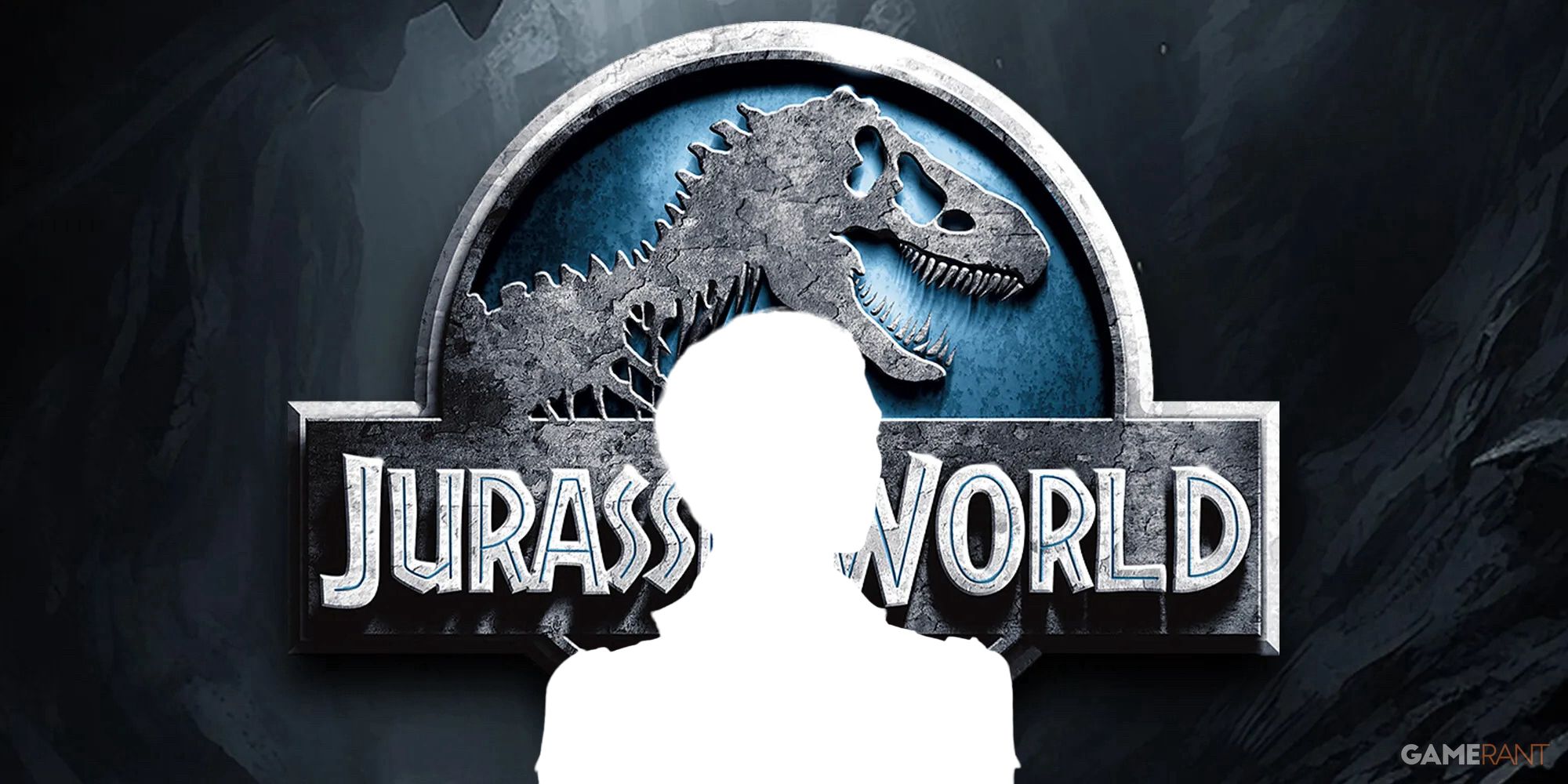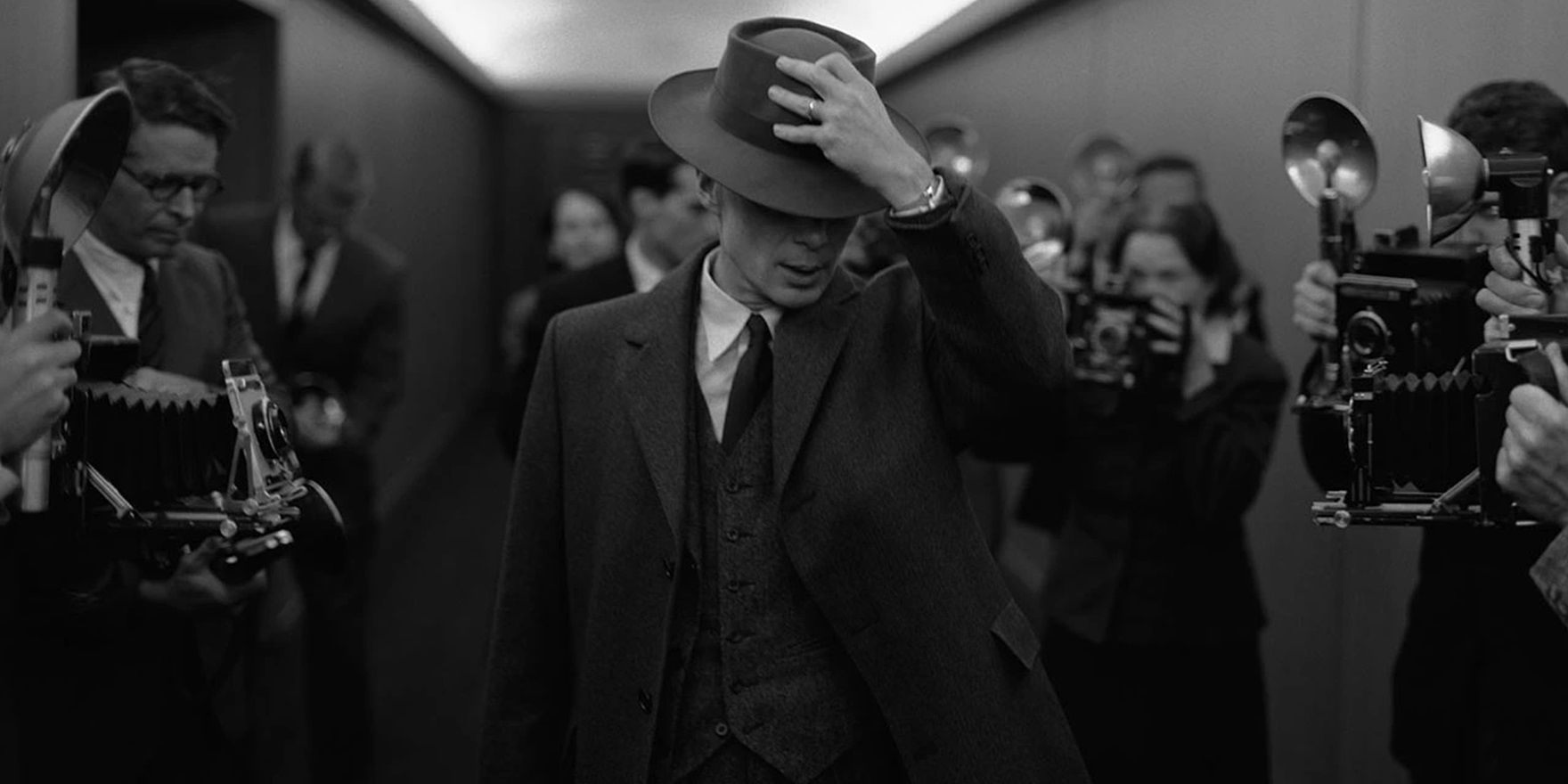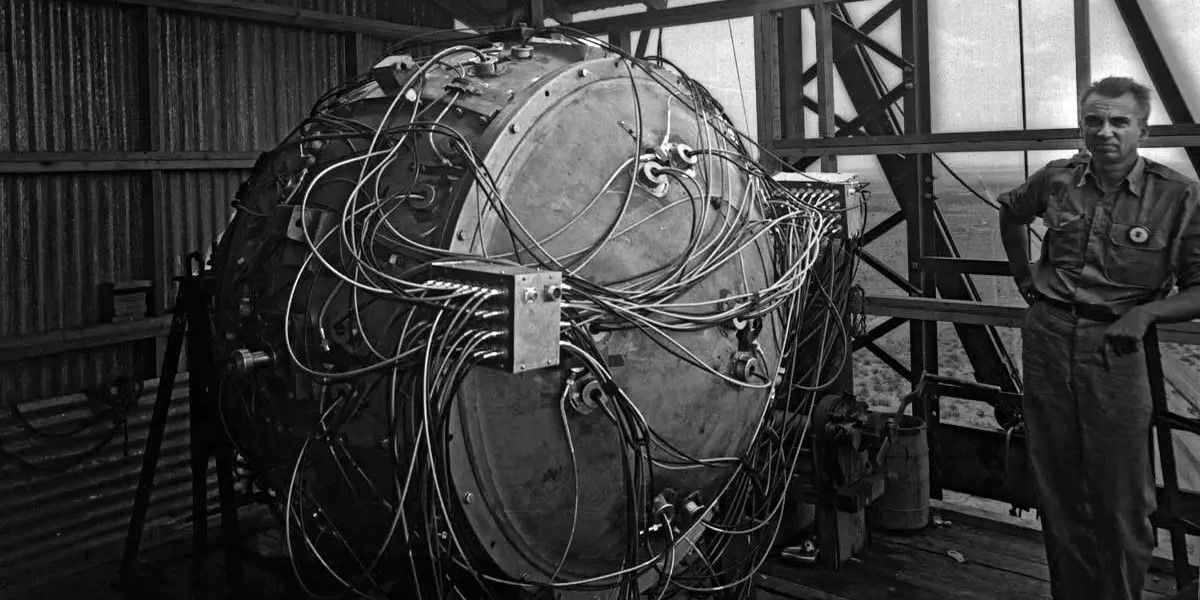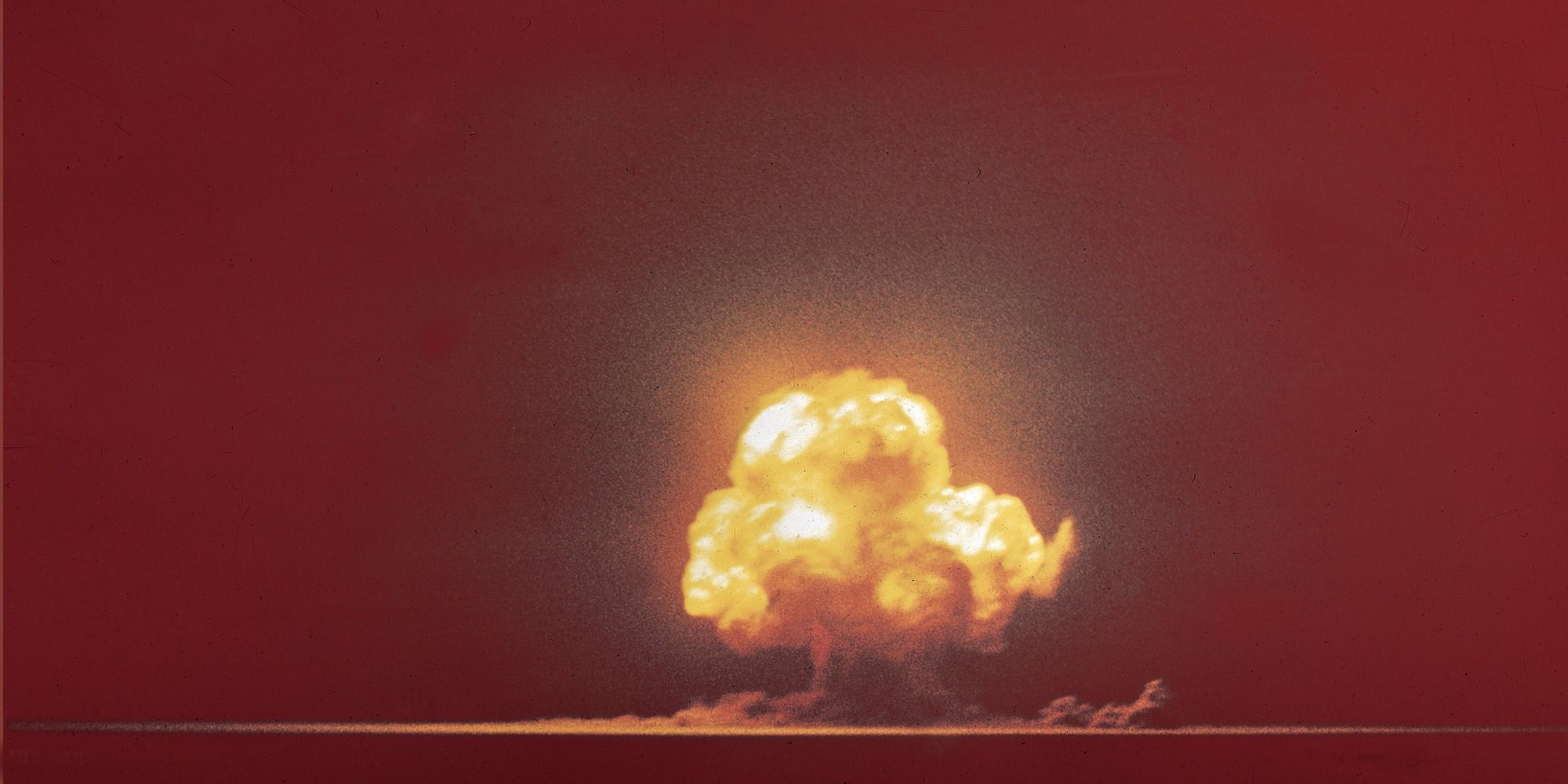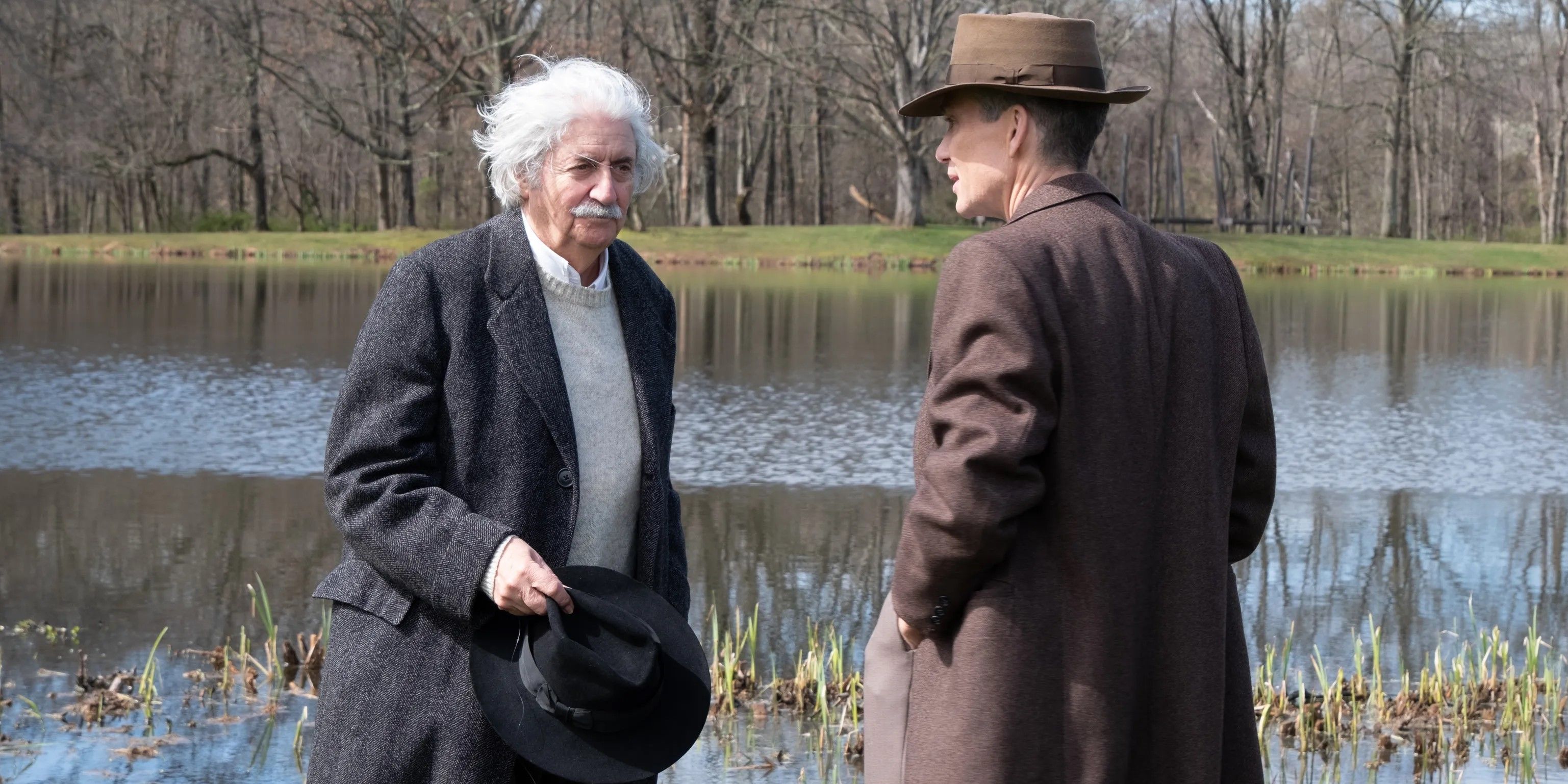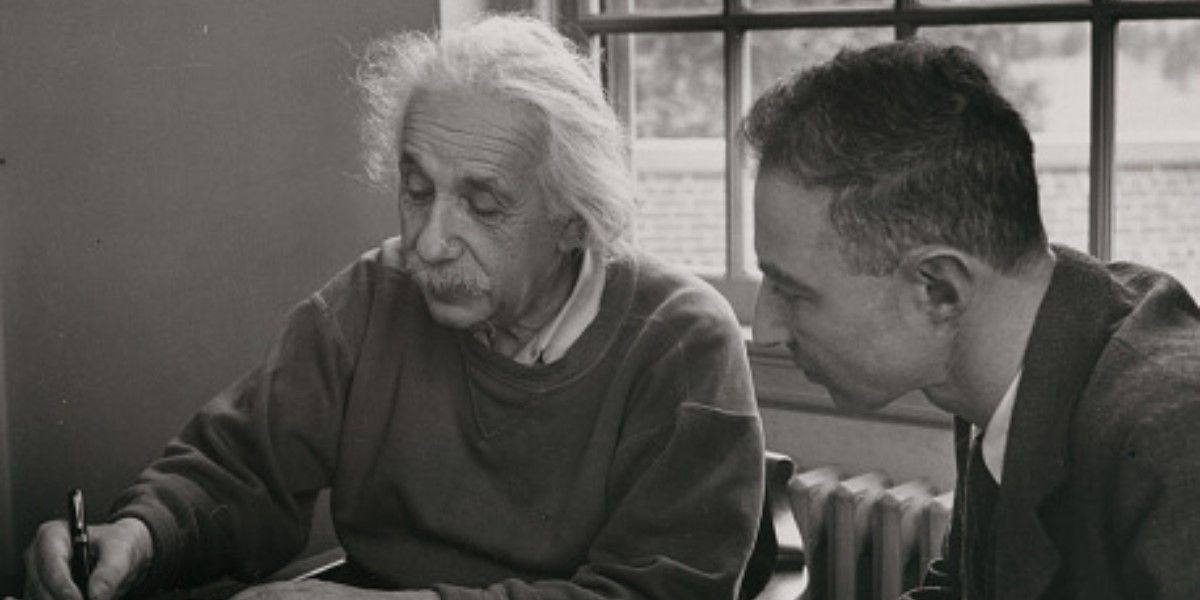With eleven films already under his belt -- including his 1998 independent film Following -- Christopher Nolan typically directs totally original films in which he has contributed to the plot and script. However, he now has a biopic to his credit with his most recent release, Oppenheimer.
Oppenheimer features an all-star cast -- Cillian Murphy, Robert Downey Jr., Emily Blunt, Matt Damon, Florence Pugh, Rami Malek, Gary Oldman, and many more -- and offers a very personal perspective on renowned American physicist J. Robert Oppenheimer. At a hefty 3 hours in length, there's a lot to unpack within this epic of a film.
What Is Oppenheimer About?
To say that Oppenheimer is solely a biopic would be an understatement, as the film provides an introspective look inside the mind of J. Robert Oppenheimer, so much so that Matt Damon stated the script was actually written in first person. The film is based on the biographical book American Prometheus, co-written by Kai Bird and Martin J. Sherwin.
J. Robert Oppenheimer, portrayed in the film by Cillian Murphy, was a Jewish-American physicist who is known for the creation of the atomic bomb. The film starts by following Oppenheimer as he endures his final years in college at the University of Göttingen in Germany before being called upon to lead the Manhattan Project.
The Manhattan Project was a top-secret project commissioned by the US government in 1942 in which the country's best scientists were brought to New Mexico to develop and test the very first nuclear bomb. While most thought it to be an exploration of science, others knew the truth in that their creation would soon be used as a weapon against the Nazis in an attempt to end World War II.
However, come 1945, Hitler was dead and the Nazi reign of terror was soon after brought to an end. By this point, the bomb wouldn't be complete for another couple of months, bearing the question: in what manner will the bomb be used? Although the Nazis were eliminated, the war waged on, with Japan being the new target for American forces.
After successfully testing the bomb, the US went ahead and decided to create two more to drop onto Japanese cities, specifically Hiroshima and Nagasaki. This decision was to Oppenheimer's and many of the other scientists' dismay, as the explosion and lasting affects of the nuclear radioactivity caused near 200,000 deaths in total.
After Japan surrendered, the war ended, and Oppenheimer was revered as an American hero, even though he didn't feel any such way (an essential focal point in the film). Years later, the Soviet Union developed their own atomic bomb and Oppenheimer was informally accused of being a communist and possibly a Soviet spy. This was brought to attention by the former US Secretary of Commerce and chairman for the Atomic Energy Commission (AEC), Lewis Strauss, played by Robert Downey Jr.
Throughout the film, the story bounces back and forth between the Manhattan Project (filmed in color) and the hearing for whether the government should prosecute Oppenheimer for his alleged treason (filmed in black and white), but once the war is over, the film mainly focuses on the latter situation.
How Does Oppenheimer End?
The final act of the film follows Strauss in his attempts to take down Oppenheimer for good. After a lengthy hearing, Strauss is successful in revoking Oppenheimer's government security clearance, but fails in trying to prosecute him as a communist and Soviet spy.
In the aftermath of the war and the hearing years later, Oppenheimer held tremendous guilt about the many lives that were taken as a result of his catastrophic "gadget", as he referred to it, even though he had no control, or say, in the matter of where and when the bomb would be used. Oftentimes, when Oppenheimer was unsure of something or needed advice throughout the film, he sought the wisdom of his good friend and scientific colleague, Albert Einstein, played by Tom Conti.
In the beginning of the film, when viewers are first introduced to Strauss, he's visited by Oppenheimer at Princeton University and is taken to Einstein, who is standing by a pond. Oppenheimer leaves Strauss behind to go discuss something with Einstein. After a moment, Einstein walks away, passing Strauss, looking very upset about something. Initially, Strauss -- and the viewers -- are led to believe that Oppenheimer talked badly about Strauss to Einstein, something that makes the AEC chairman resent Oppenheimer and be one of the reasons why he tries so hard to take him down.
By the end, it's revealed that the visit to Princeton takes place sometime after the war and before the hearing, and that the conversation Oppenheimer and Einstein have has nothing to do with Strauss. Instead, the short discussion centers on the worry that the creation of the atomic bomb will eventually lead to the end of the world.
Nolan incorporates a recurring theme throughout the movie of ripples and chain reactions. This is done in relation to how an atomic bomb works in which the particles continuously combust into smaller fragments over and over again. Oppenheimer's initial worry is that because of this, the bomb would potentially be never-ending and infinitely spread across the world. Although that didn't happen literally, Oppenheimer and Einstein's conversation alludes to the fact that the chain reaction is actually in reference to how the atomic bomb will become the main weapon in future warfare.
As Oppenheimer stares into the distance, the screen cuts to images of missiles being launched into the sky and a view of Earth from space where it becomes engulfed in flames that quickly spread across the globe. In this sense, Oppenheimer is worried that his invention of a single nuclear weapon will lead to the ultimate demise of the entire world.
Oppenheimer ultimately shows how a single country's greed and desire to showcase their power can have profound lasting effects on the mortality of the world and on the curiously intelligent minds of the world's most important intellectuals.



